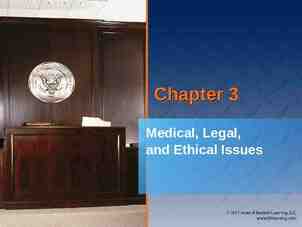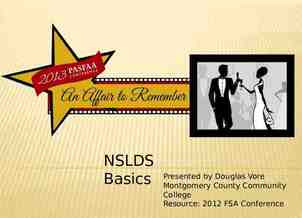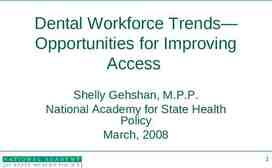THE UNIVERSITY OF NORTH CAROLINA University Charter: 1789 Faculty of
51 Slides637.57 KB

THE UNIVERSITY OF NORTH CAROLINA University Charter: 1789 Faculty of Medicine: 1879

PROFESSIONALISM AND MEDICINE’S SOCIAL CONTRACT

VIGNETTE You are a patient in the emergency room with chest pain. You have a personal cardiologist who has treated you for a heart attack in the past. You ask that he be called and are informed that he is unavailable as he is about to go to a basketball game.

VIGNETTE A long-standing patient of yours has developed a life-threatening condition, whose optimal treatment is not covered under his health care plan. You are asked to endorse his insurance claim using a diagnosis for which the specific treatment is covered.

The Current Situation Society “a better informed community is asking for accountability, transparency, and sound professional standards” Medicine “feels that it’s autonomy is severely restricted by budgets, bureaucracy, guidelines, and peer review” Dunning. BMJ: 1999

THE RESULT Medicine’s relationship with society is under intense scrutiny Most call this relationship a “Social Contract”- a term used for 300 years Reciprocal rights and obligations are fundamental to the concept A BASIS FOR THE DIALOGUE WHICH MUST TAKE PLACE BEYWEEN MEDICINE & SOCIETY

WHAT IS A SOCIAL CONTRACT ?

The Social Contract 18th century concept Hobbes, Locke, Rousseau Explains the relationship between citizens and the state Concept evolved over time Still used to describe the organization of contemporary society (Rawls, Daniels) Stresses Mutual Privileges and Obligations

THE SOCIAL CONTRACT “The rights and duties of the state and its citizens are reciprocal and the recognition of this reciprocity constitutes a relationship which by analogy can be called a social contract” Gough, “The Social Contract”, 1957

The Social Contract The Social Contract in Health Care Hinges on Professionalism It serves as the basis for the expectations of medicine and society. It is constantly being renegotiated as society & medicine evolve Professionalism must evolve as the contract changes

The Contract - Historical Solo practitioner Patient payer individual covenant Accountable to patient Minimal accountability to society Unquestioned authority and autonomy Opportunities to demonstrate altruism High level of trust “NOSTALGIC PROFESSIONALISM” (Hafferty) Persists in our self-image and in society’s view of physicians.

WHAT CHANGED- HEALTH CARE Effectiveness of health care Complexity of health care Cost of health care The Result: Risk 3rd party payers » state » corporate sector A REVISED CONTRACT

WHAT CHANGED- SOCIETY Questioning society » Blind vs earned trust » Altruism » Self-regulation New levels of accountability » To payers » To society A REVISED CONTRACT

The Contract - Tensions Traditional Calling vs Job Altruism vs Self-Interest Art vs Science/Technology Autonomy vs Accountability

The Contract - Tensions NEW Medicine - Moral Act or Commodity Fiduciary Duty to Patients vs Social Justice Collegiality vs Competition collegiality self-regulation Employee vs Independent Professional

Threats to Medicine’s Professionalism Arise From Two Sources INTERNAL- Within the Profession MEDICINE MUST CONTROL EXTERNAL- Beyond Medicine’s Control MEDICINE MUST NEGOTIATE

PROFESSIONAL STATUS IS IMPORTANT TO MEDICINE IT CONFERS: Prestige and Respect Trust Autonomy in Practice Self- Regulation Financial Rewards

PROFESSIONALISM IS ALSO IMPORTANT TO SOCIETY “ Neither economic incentives, nor technology, nor administrative control has proved an effective surrogate for the commitment to integrity evoked in the ideal of professionalism ” Sullivan, 1995

WHAT IS MEDICAL PROFESSIONALISM?

Physicians Have Two Roles HEALER PROFESSIONAL Served simultaneously Analyzed separately

Healing and Professionalism THE HEALER THE PROFESSIONAL Antiquity Asclepius Hippocrates Maimonedes Other Cultures technology “curing” The Present Codes of Ethics Middle ages “Learned professions” clergy, law, medicine 1850:Legislation monopoly Science 1900:University linkage The Present

Professionalism as the word is used usually includes both roles

PHYSICIAN Healer Caring/ compassion listen Insight Openness Respect for the healing function Respect patient dignity/autonomy Advocate for Patient Presence/Accompany Professional Competence Commitment Confidentiality Altruism Trustworthy Autonomy Self-regulation associations Integrity / Honesty institutions codes of ethics Morality / Ethical Behavior Responsibility to profession Responsibility to society Team work Based on the Literature

The Primary Role is that of the Healer

DEFINITION: PROFESSION “An occupation whose core element is work based upon the mastery of a complex body of knowledge and skills. It is a vocation in which knowledge of some department of science or learning or the practice of an art founded upon it is used in the service of others. Its members are governed by codes of ethics and profess a commitment to competence, integrity and morality, altruism, and to the promotion of the public good within their domain. These commitments form the basis of a social contract between a profession and society, which in return grants the profession a monopoly over the use of its knowledge base, the right to considerable autonomy in practice and the privilege of self-regulation. Professions and their members are accountable to those served, to their colleagues, and to society.” Derived from the Oxford English Dictionary and the literature on professionalism Cruess, Johnston, Cruess “Teaching and Learning in Medicine”, 2004

UNIVERSALITY THE ROLE OF THE HEALER IS UNIVERSAL PROFESSIONALISM VARIES BETWEEN COUNTRIES & CULTURES DEPENDING ON THEIR SOCIAL CONTRACT

The Social Contract “A BARGAIN” Medicine is given prestige, autonomy , the privilege of self-regulation , and rewards on the understanding that it will be altruistic, selfregulate well , be trustworthy, and address the concerns of society

The Social Contract A mix of: the written and the unwritten – licensing laws, health care legislation, codes of ethics legal and moral obligations the universal and the local Constantly evolving (being “renegotiated”)

WHO ARE THE PARTIES TO THE CONTRACT?

THE SOCIAL CONTRACT SOCIETY THE MEDICAL PROFESSION Medicine’ Institutionss Individual Physicians SIO S E F O R P SM I L NA Expectations Obligations PRO FE Cruess & Cruess Perspectives in Biol & Med. 2008 SSIO NAL I SM Patients P O L I General Public T I C A L Government Politicians Civil Servants Managers

MEDIATORS OF THE SOCIAL CONTRACT 1. Health Care System 2. Regulatory Framework 3. The Commercial Sector 4. Other Stakeholders 5. The Media after Rosen & Dewar, 2004

WHAT ARE THE EXPECTATIONS OF MEDICINE AND SOCIETY?

Patients/ Public Expectations of Medicine Fulfill the role of the healer Assured competence Access to care Altruistic service Morality, Integrity, Honesty Trustworthiness Codes of Ethics Accountability/Transparency Respect for patient autonomy Source of objective advice Promotion of the public good Medicine’s Expectations of Patients/Public Trust Autonomy (to exercise judgment) Role in public policy Share responsibility for health Lifestyle Rewards – non-financial – financial Cruess & Cruess Perspectives in Biol & Med. 2008

Government’s Expectations of Medicine Assured competence Morality, integrity, honesty Compliance Accountability performance productivity cost-effectiveness Transparency Team health care Source of objective advice Promotion of the public good Cruess & Cruess Perspectives in Biol & Med. 2008 Medicine’s Expectations of Government Trust Autonomy (to exercise judgment) Self-regulation Health Care System value-laden equitable adequately funded & staffed reasonable freedom in system Role in developing health policy Monopoly Rewards – non-financial respect – financial

Public/Patient Expectations of Government Quality health care Health care system Accessible Fair Value laden Adequately funded & staffed Input into health policy Reasonable cost Transparency Accountability Government Expectations of the Public/Patient Appropriate use of resources Reasonable expectations Some responsibility for own health Support for public policy ? input into public policy & management Cruess & Cruess Perspectives in Biol & Med. 2008

Expectations of the parties may conflict Tensions - patient primacy vs social justice - accountability vs autonomy - finite resources vs infinite demand - the role of the healer vs market forces - fiduciary duty vs legal obligations HEALER ROLE/PATIENT PRIMACY/FIDUCIARY DUTY TAKE PRECEDENCE

THE SOCIAL CONTRACT THERE ARE CONSEQUENCES WHEN EXPECTATIONS ARE NOT MET “BREACHES” IN THE CONTRACT

Breaching the Social Contract MEDICINE FAILS TO MEET SOCIETAL EXPECTATIONS THE RESULT- A CHANGE IN THE CONTRACT public trust in the “system” (contract) trust in physician/profession medical influence on public policy self-regulation external regulation autonomy

Breaching the Social Contract SELF-REGULATION Case Study: THE UNITED KINGDOM Bristol/Shipman Result: Changes in the GMC Loss of Disciplinary Power NO LONGER TRUE SELF-REGULATION A MAJOR CHANGE IN THE CONTRACT AND IN PROFESSIONAL STATUS

Breaching the Social Contract Society Fails to Meet Medicine’s Expectations PESSIMISM Trust in the “system” (contract) Cooperation Withdrawal Job vs Calling Satisfaction OPTIMISM Medicine’s Response: Bi-Polar Involvement community associations stakeholders Negotiation ? Satisfaction

CANADA 2011 Funding of the System Personnel Personal Freedom MAJOR CHANGE IN THE CONTRACT ? BREACH Trust in the System

USA 2011 Market Oriented System MD Entrepreneurs Competition Collegiality Uninsured Increased Accountability Clinical Autonomy Moral Dilemma MAJOR CHANGE IN THE CONTRACT ? BREACH Trust in the System Uncertainty

What Should Medicine Do? These issues are here to stay Linked to societal changes MEDICINE MUST Address issues within its control Negotiate issues which it cannot control Negotiate a Contract that Supports the Healer Role

What issues within its control should medicine address?

What Should Medicine Do? ENSURE THAT ALL PHYSICIANS UNDERSTAND THEIR OBLIGATIONS TO SOCIETY AS PROFESSIONALS TEACH PROFESSIONALISM & THE SOCIAL CONTRACT TO MEDICAL STUDENTS, RESIDENTS, FACULTY & IN CME (LCME, ACGME, OTHERS)

MEDICINE MUST ADDRESS ITS FAILURES Perceived altruism individual- lifestyle financial gain collective- “union” activities Flawed self-regulation Badly managed conflicts of interest Lack of attention to social justice

What Should Medicine Do? Negotiate to Address External Stresses Requires: a trusted single or coordinated voice a negotiating table Recognize multiple stakeholders Medicine no longer the dominant player but it must be at the table

What Should Medicine Do? Negotiations must: Preserve Trust Satisfy both sides Negotiations not Symmetrical Society through government determines the nature of the social contract and hence of medical professionalism However- SOCIETY NEEDS THE HEALER!

What Should Medicine Do? Medicine alone can not change the social contractthe health care system The public and medicine have similar expectations Medicine and the public should form an alliance to negotiate a social contract supportive of the values of the healer and the professional Cohen, S. Cruess & Davidson. JAMA, 2007

“Since time immemorial, a part of human culture has been man’s care for himself, for the body in which the spirit resides - that is for his own health. The culture of healing may be a less visible aspect of life, yet it is perhaps the most important indicator of the humanity of any society” Vaclav Havel, Summer Meditations, 1993

THANK YOU! Centre for Medical Education, McGill University






